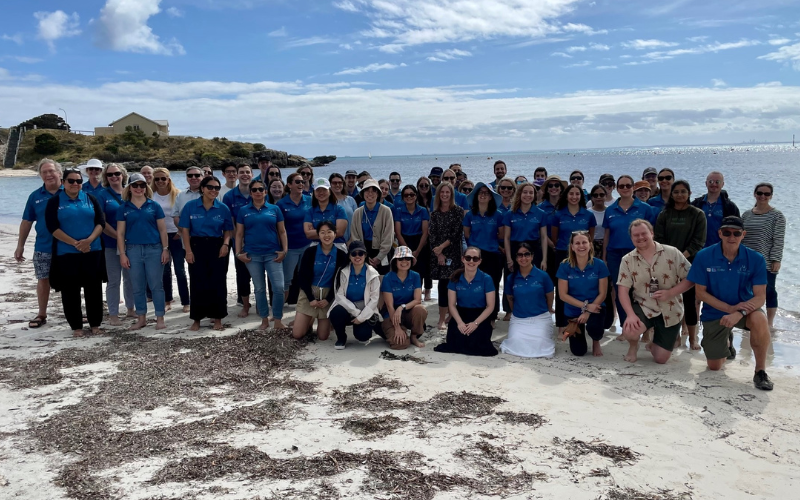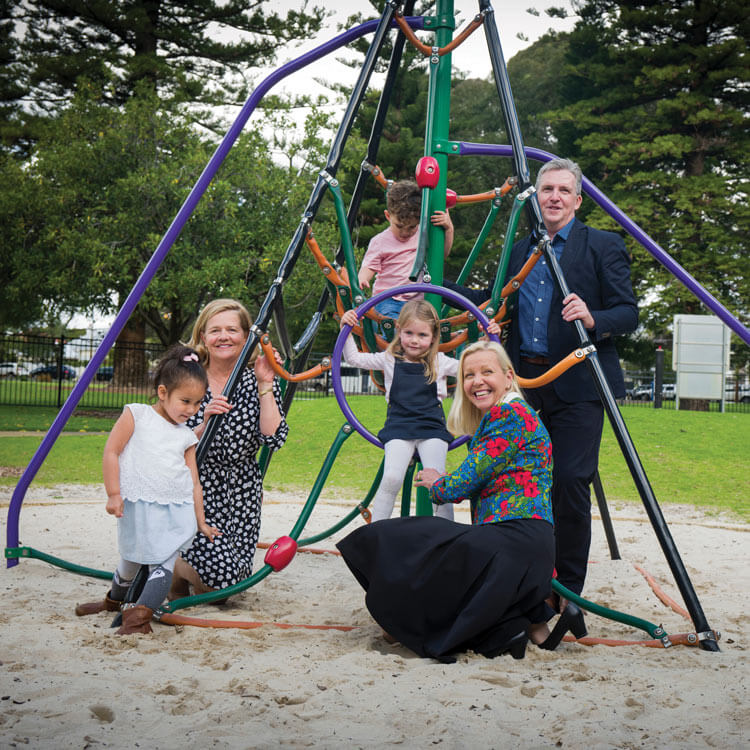Search
Showing results for "1"

News & Events
Telehealth can support families with their goalsIn this blog, Speech Pathology Clinical Lead Aria May looks at telehealth and how it can support children and families with their therapy goals.


News & Events
Seven innovative lung health research projects supported by Wal-yan Centre fundingSeven innovative lung health research projects have received funding support as the 2023 Wal-yan Respiratory Research Centre Strategic Inspiration Projects.

News & Events
Wal-yan Scientific Retreat: Fostering Collaborative ExcellenceThe Wal-yan Respiratory Research Centre's dedicated team members, along with special guests, embarked on a journey to Wadjemup (Rottnest Island) on 9 and 10 November.

In 2014, Wesfarmers committed $5 million over 4 years to The Kids' research to set up the Wesfarmers Centre of Vaccines and Infectious Diseases.

Minderoo Foundation and The Kids join forces to give children the best possible start.

News & Events
Meet the Researcher: Dr Gina TrappDr Gina Trapp is the Head of Food and Nutrition – driven to leading her team in becoming a hub of child and adolescent nutrition research globally.

In 2020, we celebrated our 30th birthday with those who matter most — the kids whose lives we’ve changed through the research we do.
Research
Exploring healthcare providers’ perspectives on the factors that facilitate primary health care access among Aboriginal and Torres Strait Islander young peopleAboriginal and Torres Strait Islander young people aged 15-24 years of age often encounter challenges accessing and utilising primary health care (PHC). Providing health care responsive to the needs of Aboriginal and Torres Strait Islander young people requires the active involvement of healthcare providers (HCPs), who play a central role in healthcare delivery. This study explored perspectives of HCPs working in urban Aboriginal and Torres Strait Islander Community-Controlled Health Organisations (ATSICCHOs) on the factors that facilitate Aboriginal and Torres Strait young people accessing and utilising PHC services.
Research
#TransTok: a digital ethnographic study using content analysis to investigate transgender and gender diverse ‘for you page’ content on TikTok that may affect mental healthTransgender and gender diverse (“trans”) people are more likely to experience adverse mental health outcomes due to the social adversities that are commonly experienced. One ameliorating factor for poor mental health outcomes can be connection to community, often facilitated in online spaces such as TikTok.
